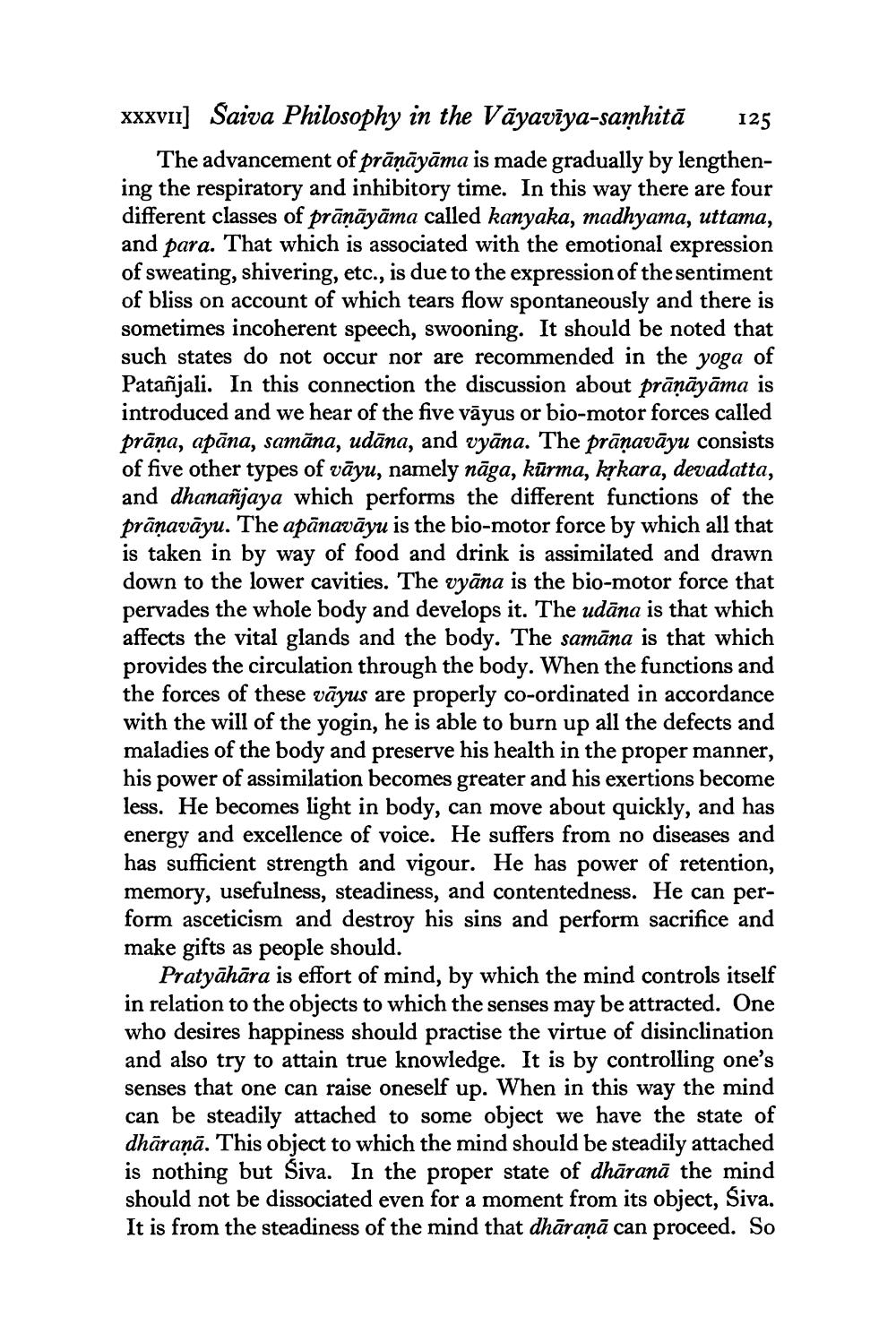________________
XXXVII] Saiva Philosophy in the Vāyavīya-samhitā 125
The advancement of prāņāyāma is made gradually by lengthening the respiratory and inhibitory time. In this way there are four different classes of prāņāyāma called kanyaka, madhyama, uttama, and para. That which is associated with the emotional expression of sweating, shivering, etc., is due to the expression of the sentiment of bliss on account of which tears flow spontaneously and there is sometimes incoherent speech, swooning. It should be noted that such states do not occur nor are recommended in the yoga of Patañjali. In this connection the discussion about prāņāyāma is introduced and we hear of the five vāyus or bio-motor forces called prāņa, apāna, samāna, udāna, and vyāna. The prāņavāyu consists of five other types of vāyu, namely nāga, kūrma, krkara, devadatta, and dhanañjaya which performs the different functions of the prāņavāyu. The apānavāyu is the bio-motor force by which all that is taken in by way of food and drink is assimilated and drawn down to the lower cavities. The vyāna is the bio-motor force that pervades the whole body and develops it. The udāna is that which affects the vital glands and the body. The samāna is that which provides the circulation through the body. When the functions and the forces of these vāyus are properly co-ordinated in accordance with the will of the yogin, he is able to burn up all the defects and maladies of the body and preserve his health in the proper manner, his power of assimilation becomes greater and his exertions become less. He becomes light in body, can move about quickly, and has energy and excellence of voice. He suffers from no diseases and has sufficient strength and vigour. He has power of retention, memory, usefulness, steadiness, and contentedness. He can perform asceticism and destroy his sins and perform sacrifice and make gifts as people should.
Pratyāhāra is effort of mind, by which the mind controls itself in relation to the objects to which the senses may be attracted. One who desires happiness should practise the virtue of disinclination and also try to attain true knowledge. It is by controlling one's senses that one can raise oneself up. When in this way the mind can be steadily attached to some object we have the state of dhāraṇā. This object to which the mind should be steadily attached is nothing but Siva. In the proper state of dhāranā the mind should not be dissociated even for a moment from its object, Siva. It is from the steadiness of the mind that dhāranā can proceed. So




